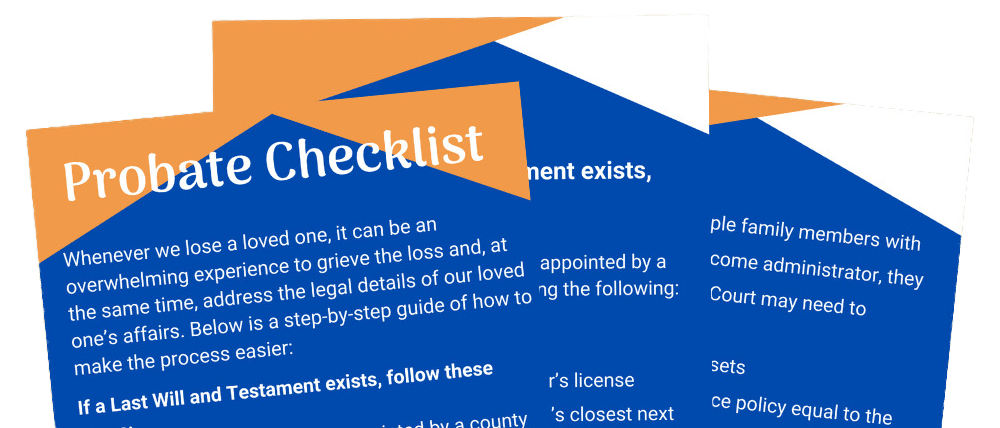Most people do not understand what non-probate assets are, and they are an important part of every estate plan.
Non-probate assets are accounts that are typically not controlled by a Will because they pass to a named beneficiary or to a joint account holder. Examples of non-probate assets include life insurance policies and retirement accounts which come with beneficiary listings. Once the owner of a life insurance policy or retirement account dies, those account proceeds will be distributed to the beneficiaries listed for those accounts. Bank accounts that are jointly owned by the decedent and another person are likewise excluded from the estate because they pass to the surviving account owner.
Our experience tells us that many people don’t realize the importance of those non-probate assets. We often hear from clients who are told by their banker to add one child as a joint owner of their bank accounts. The reason, according to our client’s banker, is so the joint account owner can help their parent pay their bills. What the clients are probably not told is that the one child named as a joint owner of the account will be entitled to all of the account proceeds at the death of the client. This may be fine if the client only has the one child whom they named as a joint owner, but what if the client has four children and only the one child gets legal ownership of the account proceeds?
The client’s Will might dictate that all assets are equally divided among the four children, but that Will does not control how that jointly-owned account is dispersed upon the client’s death. The failure to focus on the beneficiary designations and any joint ownership of accounts can skew one’s estate plan to benefit one child over the other, although the client may think all assets will pass equally upon their death.
We also represent many clients who tell us that they named their children as the beneficiaries of their retirement accounts or life insurance policies. We need to make sure, however, that the children are old enough to take possession of those accounts. If the children are minors, they cannot own assets directly and must have an adult, usually their parent, hold assets in trust or a custodial account for the benefit of the minor children.
We draft wills for clients with minor children that contain trusts which will benefit the minor children for their educational needs and other requirements. Then, we advise these clients to name the trusts under the Will for the benefit of their minor children as the beneficiary of those life insurance policies of retirement accounts.
In summary, here at TREEL, we encourage everyone to check whether they have titled any assets jointly with another owner and who are the listed beneficiaries of those accounts which come with beneficiary designations as part of their estate plan review.



